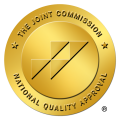Schizophrenia Treatment – Why Hiring Experts Helps Rehab Facilities
If you are in the addiction treatment industry and are serving individuals with schizophrenia, hiring schizophrenia treatment experts can help you provide better services to your patients.
What is Schizophrenia?
Schizophrenia is a complex mental health condition that causes individuals to feel they are no longer connected to reality.1 This mental illness is more likely to occur in males than females. It typically first occurs in the late-teen years, but schizophrenia can arise later in life or, in some cases, during childhood.
How is Schizophrenia Related to Addiction?
As with many mental illnesses, addiction is often a co-occurring condition. It is no different with schizophrenia. Depending on the patient, if the mental illness occurred first, the individual may turn to drugs instead of traditional treatment methods to self-medicate their symptoms. For others, schizophrenia symptoms may develop after extensive drug use.Symptoms of Schizophrenia
There are numerous symptoms associated with schizophrenia. Individuals with schizophrenia often exhibit an initial episode of psychosis.2 Symptoms typically include:
- Hallucinations
- Hearing voices
- Seeing things that are not real
- Abnormal thinking
- Unusual behaviors
It is not uncommon for individuals with schizophrenia to experience delusions, particularly believing there are threats against them. This paranoia or extreme fear is very real to the individual. The individual’s thinking becomes disorganized as their mental illness progresses, and their speech and general communication reflect this disorganization. It can be difficult at times to interact with someone who struggles with schizophrenia. Another common symptom is what is known as a “flat affect,” or when one shows no emotions or expressions.
Symptoms of Addiction
Signs of addiction usually include:
- Extreme mood swings
- Decreased socializing
- Ignoring relationships
- Increased risky behavior
- Shaking and sweating if in withdrawal3
Addiction occurs when the body becomes accustomed to absorbing a substance such as prescribed medication or illegal drugs. The same is true for alcohol.
Causes of Schizophrenia
The underlying cause of schizophrenia is not always clear. Genetics do play a role for some patients as it is known to run families.4 However, it is not possible to use DNA testing to determine if one will develop the condition or not. Another potential cause for schizophrenia is one’s living environment.
Research has shown that genetics along with certain environmental factors such as poverty, health, and stress may result in higher numbers of individuals with schizophrenia. A third possible cause of schizophrenia lives within the brain itself. Some studies show that the brains of people with schizophrenia are different than those without, suggesting the disease may have been present in these individuals from birth.
Diagnosing Schizophrenia
There is no specific test for schizophrenia. Diagnosis of this illness requires ruling out other conditions such as substance abuse or other mental health conditions.5 During the diagnosis process, the doctor may use the following to make a final determination:
- Family history:It is important to know as much about the background of the patient as possible to understand genetics and environmental factors that may help with diagnosis.
- Physical exam: Having the entire health record of the individual helps determine if symptoms are associated with a larger issue or not.
- Psychiatric evaluation: A licensed mental health professional, psychologist, or psychiatrist can complete a comprehensive evaluation that assesses the patient’s thoughts, activities, behaviors, and moods. Hallucinations and delusions are included in this evaluation.
- Additional tests: A blood sample may be taken for further testing. Urine samples are used for drug screening. Some doctors may request CT or MRI scans to see what is going on inside the brain.
Even with these tools, the initial diagnosis may be wrong. Reasons for this include if a doctor asks the wrong questions, if the patient will not participate in verbal or physical assessments, or if the final assessment results are simply inconclusive.5
The Complexity of Diagnosing Schizophrenia
- Schizotypal Personality Disorder: Individuals with this disorder experience fewer, briefer, and less intensive psychotic episodes of hallucinations and delusions than those with schizophrenia.
- Schizoid Personality Disorder: Individuals with this disorder remain in touch with reality and rarely experience delusions or hallucinations. They may have difficulty making social contacts, but they do not have communication or speech challenges.
- Delusional Disorder: Individuals with this rare condition only have delusions. They do not have the flat affect, hallucinations, abnormal thoughts, or mood swings experienced by individuals with schizophrenia.
- Schizoaffective Disorder: Individuals with this disorder experience mood disorder symptoms such as mania or depression alongside schizophrenia symptoms.
- Schizophreniform Disorder: Individuals with this disorder experience schizophrenia symptoms for a period that is less than the six months needed for an official schizophrenia diagnosis.
Treating Schizophrenia as a Co-Occurring Disorder
To be successful, an addiction treatment plan for schizophrenia may need to be co-joined with a treatment plan for addiction. If the patient has these co-occurring disorders, ignoring one during treatment sets the patient up for failure. Addiction must be addressed in the context of mental illness.
How Psychiatrists Help
Licensed and experienced psychiatrists must complete medical school alongside four additional years of psychiatry training. They understand the biological and mental effects of addiction and its interaction with schizophrenia treatment. Additional ways psychiatrists can help a patient with co-occurring schizophrenia and addiction issues include:
Psychotherapy
Psychiatrists can provide one-on-one or even group psychotherapy sessions to help individuals with schizophrenia better understand their symptoms and triggers. These sessions also allow the patient to share coping experiences with others as peer-to-peer support and reinforcement.
Medications
Psychiatrists can prescribe medication to help individuals with schizophrenia manage their symptoms. They are the only ones in the psychiatric field, outside of medical doctors, who can prescribe medications. Psychiatrists can make sure there is no possible interaction between psychiatric medications and other medications the patient may be taking. Common medications used in schizophrenia treatment include clozapine, methylphenidate, and risperidone. As with any medication, these can have side effects such as excessive tiredness and weight gain.
Identifying the most appropriate treatment option must include the patient’s choice. Involving the patient at every decision point increases the likelihood of their ongoing participation in treatment. Individuals living with schizophrenia find it difficult to follow treatment plans in general, more so if they had no say in their development.
Challenges to Treatment Facilities That Lack an Expert in Schizophrenia
One challenge in treating someone with schizophrenia in a drug treatment facility is being aware that their medications may cause drug-related symptoms. They may slur their words, appear drowsy, or be extremely manic. Treatment facilities must be able to recognize the signs and outcomes of schizophrenia treatment to provide adequate addiction treatment.
Ineffective Treatment
At best, a treatment facility may provide ineffective programming for someone with schizophrenia. However, this can be frustrating for everyone involved. The patient still needs help with their addiction, and the facility loses an opportunity for successful patient recovery.
Harmful Treatment
The worst a treatment facility can do is harm a patient. One way that addiction treatment can harm someone with schizophrenia is by not understanding how their schizophrenia medication works. It is also possible to harm individuals with schizophrenia when you simply do not know how to properly interact with them. For example, if a facility is having a group session and a patient with schizophrenia begins talking to imagined voices in a way that disrupts the group, it is important to acknowledge what that individual is doing and ask them to wait until the session is over to finish their conversation. Nobody in the group should treat someone with schizophrenia differently or make them feel uncomfortable in any way.Relapses
It is common for individuals with schizophrenia and addiction to relapse. Their schizophrenia symptoms can be so overwhelming that they believe the only way to handle them is through illicit drug use. One can also relapse if they become frustrated with their treatment situation, either psychiatric or addiction.
Why a Treatment Facility Should Outsource Schizophrenia Treatment
- Treat both addiction and schizophrenia successfully: Outsourcing psychiatric treatment allows a rehab facility to focus on addiction treatment, making sure the whole person is addressed from a medical perspective.
- File timely and accurate reimbursement paperwork: Outsourcing psychiatric treatment removes the corresponding billing component from the rehab facility. By allowing experts to handle the coding and billing process, the facility is paid faster.
- Avoid malpractice claims and lawsuits: By outsourcing schizophrenia treatment, a facility is less likely to be sued for malpractice by a patient with schizophrenia.
Resources
https://www.nimh.nih.gov/health/topics/schizophrenia/index.shtml
https://www.nimh.nih.gov/health/topics/schizophrenia/index.shtml
https://www.drugabuse.gov/publications/drugs-brains-behavior-science-addiction/drug-misuse-addiction
https://www.mayoclinic.org/diseases-conditions/schizophrenia/symptoms-causes/syc-20354443
https://www.mayoclinic.org/diseases-conditions/schizophrenia/diagnosis-treatment/drc-20354449
https://www.mayoclinic.org/diseases-conditions/schizophrenia/diagnosis-treatment/drc-20354449




